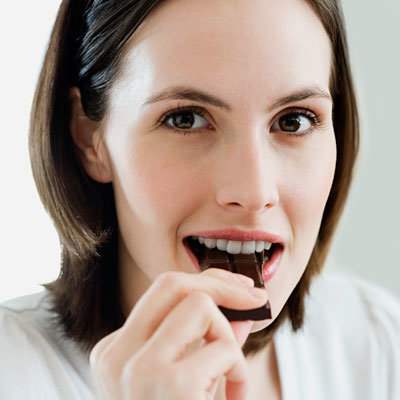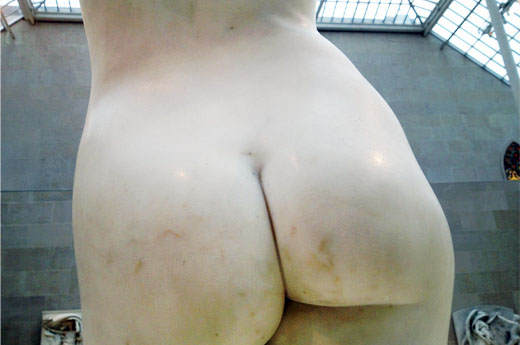Non-Surgical Liposuction: The Benefits & Risks of New Procedures
Many who watch their caloric intake and exercise regularly hit a weight-loss plateau and/or are unable to reduce fat in certain places, leading to unsightly belly fat, saddle bags, and love handles.
How then can one reduce this stubborn fat? And is there a way to do so without the pain, downtime and sometimes non-uniform results of the traditional and invasive liposuction procedures?
People are increasingly finding the body they once had with non-surgical liposuction. Three leading procedures have emerged:
1.iLipo?br />
2.Zerona?br />
3.CoolSculpting?br />
iLipo
i-Lipo is a system that uses photobiomodulation to stimulate the release of excess calories (fat) stored in adipose cells. Also known as low level laser therapy (LLLT), photobiomodulation is a medical technique that uses LLLT in the form of infra-red light that causes a cell抯 mitochondria to release fat without any change to diet and exercise and without causing cellular damage. As a result, the manufacturer claims, 揚atients can expect results of losing 1-2 dress sizes during their course of treatments.?br />
The Problem: iLipo doesn抰 remove fat cells but rather causes a temporary release of fat, which requires the patient to return for the procedure on a regular basis unless they are able to make significant changes in their habits to keep from gaining weight again.
Zerona
Zerona utilizes a cold laser technology to release the cellular contents of fat cells without causing damage to other cells. According to the manufacturer, 揟he release of the fat cell contents is the result of the disruption of the cell抯 membrane, called a transitory pore. Within minutes of low level laser exposure, fat cells begin to develop transitory pores, allowing the evacuation of the cell抯 contents into extracellular space. Once the contents of the fat cell have been emptied, they are released into interstitial space where it can be passed through the body during its normal course of detoxification. On average, patients lost on average 3.64 inches from the circumference of their waist, hip and thighs.?br />
The Problem: as with iLipo, Zerona doesn抰 remove fat cells but only causes a temporary release of fat. Additionally, patients often have to have 6 treatments over a 2 week period. Nutritional supplements are also recommended for purchase, as well as a diet and exercise program for results to be seen.
CoolSculpting
CoolSculpting is a non-surgical, cryolipolysis procedure developed by dermatologists at the Wellman Center for Photomedicine at Massachusetts General Hospital, which is a teaching affiliate of Harvard Medical School. Cryolipolysis reduces fat tissue instead of just shrinking fat cells by using a targeted cooling process that kills fat cells underneath the skin by freezing them to the point of elimination梐 process called apoptosis. The dead fat cells are then naturally eliminated from your body through the lymphatic system. No knives, needles, or scars are involved.
The idea for cryolipolysis is based on phenomenon called "popsicle panniculitis,?named after the freezing and destruction of fat cells in the checks as a result of contact with popsicles. This was first noticed by dimpling in the cheeks of children eating popsicles.
According to Laser Aesthetics Cape Cod, CoolSculpting typically leads to a 20-22% reduction in fat (reported by others as high as 25%), so the ideal candidates for this procedure are within 10-20 pounds of their ideal body weight according to the BMI-body mass index. The process takes about an hour per fat area梩he applicator is placed for an hour on each side for love handles, for example. Patients have reported no pain and little discomfort, though they will feel vacuum pressure and a bit of pulling and tugging. The area becomes numb once the temperature reaches 12?C. Patients typically watch TV or work on their iPad during the procedure.
Afterwards, the area may feel a bit firm, possibly a bit tender or sore, but typically returns to normal the next day. Patients usually start seeing results as early as three weeks but generally over three months as the fat tissue shrinks down over time. There are no reported side effects, tissue damage or non-uniform results. Desired results are usually achieved in one session, though additional sessions may be needed on a case-by-case basis.
-
5 Fat-Burning Herbs & Spices
There are a plethora of weight loss pills, shakes and s
-
Diet Program – What are the valuable solutions to lose weight fast – Diet plan
As you very first start the diet plan you might lose weight pretty rap
-
3 Surprising Statistics About Our Weight
To say that Americans are obsessed with dieting is an understatement!
-
How To Decrease Your Weight Just As Easily As You Increased It
Yes, its always the same? You look in the mirror and you say to yourse
-
Cardio Exercise - The Role It Plays In Losing Weight. Benefits, Intensity Levels And Exercises
Any individual who desires effective weight loss should include cardio
-
Fat Busting Exercises At Home And In The Gym
Many of us have fallen into a problem where we are constantly gaining
- DON'T MISS
- Solving Common Obesity Problems Early
- Might You Be Missing Out On This Weight Reduction Secret?
- Biggest Loser Ranch in Utah Highlighted
- Three Factors Of A Great Fat Loss Plan
- What To Exect When Recovering From Tummy Tuck Surgery
- What Could Be The Lemonade Diet
- Weight Loss Reviewed Honestly
- 10 Sneaky Things That Could Be Making You Fat
- Want Good Ideas About Fitness Then Check This Out!
- Do You Know The Whole Story About Hydroxycut Banning?




